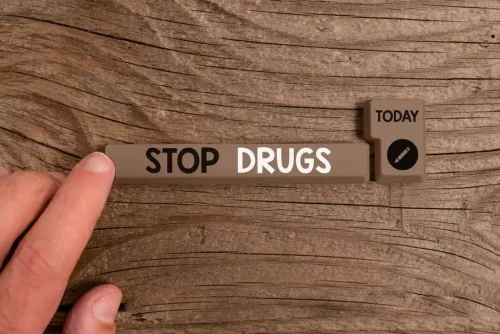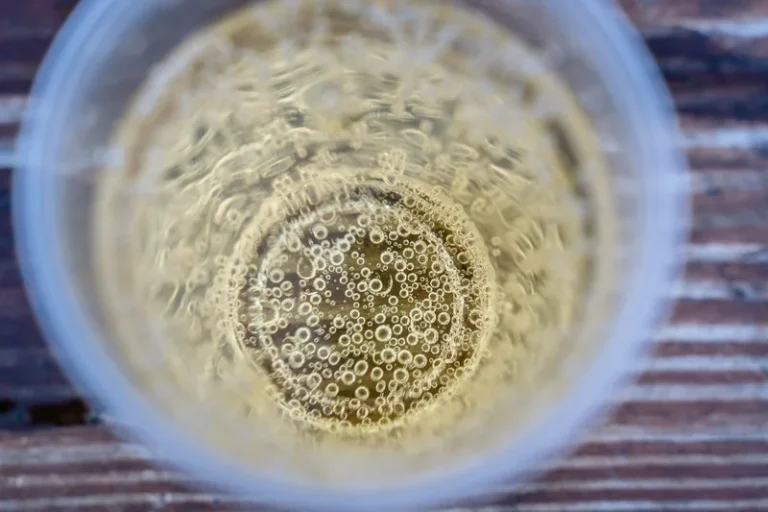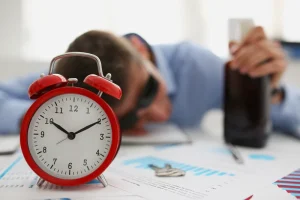
According to a study published in the journal Preventing Chronic Disease, 90% of people who abuse alcohol are not alcohol dependent. Alcohol dependence refers to being unable to stop drinking without experiencing symptoms of withdrawal. People often continue drinking to alleviate these unpleasant symptoms.
Want to stop harmful drinking? AA versus SMART Recovery
Alcohol abuse, on the other hand, involves drinking excessively without having a physical dependence. Alcohol dependence is characterized by symptoms of withdrawal when a person tries to quit drinking. Drinking to excess but not being physically dependent is called alcohol abuse. Although it may seem counterintuitive, suddenly cutting yourself off from all alcohol when you’re a heavy drinker can also become a medical emergency.
- Chemical dependency means you can’t control your use of a substance.
- Your healthcare professional might recommend one or a combination of the following approaches, depending on what they think might work best based on your specific situation and needs.
- You might even avoid seeking treatment or admitting that you have an issue because of that.
- In these cases, entering treatment for one addiction may help the individual start to see the other substance abuse problem.
- Unfortunately, many people who suffer with alcoholism are reluctant to get the treatment they need.
- In an opioid overdose, a medicine called naloxone can be given by emergency responders, or in some states, by anyone who witnesses an overdose.
Harvard Health Blog
Other drugs require supervision from a pharmacist or doctor. A detoxification is considered only part of the treatment, as it only deals with the physical dependency on alcohol. Detoxification programs may be either self-contained or part of broader psychiatric-treatment programs and normally involve both medical and psychological personnel. Individual and group psychotherapy are critical elements in aiding the patient to adjust to the physical symptoms of withdrawal and the pressures which underlay the addiction. Support groups, mainly Alcoholics Anonymous, have been very successful in treating alcoholics. In fact, the ability to admit addiction and the will to change are necessary first steps to any successful detoxification program.
Terms of Service apply.

While no longer separate diagnoses, it can be helpful to understand the differences between the two. “Dependence” refers to being unable to stop drinking without experiencing withdrawal symptoms while “abuse” refers to continuing to consume alcohol despite adverse consequences. Therapy teaches alcoholics to control emotions, cope with stress, make healthy decisions and avoid relapse. After months or years of abstinence, most people who have completed all the stages of recovery from alcoholism exhibit improved functioning and decision-making. The first important step for individuals who are suffering from alcoholism is to visit their own doctor.

- Regardless of how the addiction looks, someone typically has an alcohol addiction if they heavily rely on drinking and can’t stay sober for an extended period of time.
- When you take naltrexone, you won’t feel relaxed or get a euphoric “high” from drinking.
- Detoxification programs may be either self-contained or part of broader psychiatric-treatment programs and normally involve both medical and psychological personnel.
- According to the National Institute on Alcohol Abuse and Alcoholism, addiction to either alcohol or drugs raises your risk for becoming addicted to another substance.
- As their condition progresses, their brain chemistry, gray matter, and the specific areas of the brain that are responsible for reward will become permanently altered.
Read on to learn more about the disease of alcoholism and how it is treated. A common initial treatment option for someone with an alcohol addiction is an outpatient or inpatient rehabilitation program. An inpatient program can last anywhere from 30 days to a year. It can help someone handle withdrawal symptoms and emotional challenges. Outpatient treatment provides daily support while allowing the person to live at home. Although there’s no cure for drug addiction, treatment options can help you overcome an addiction and stay drug-free.
This included people who engaged in excessive drinking and binge drinking. However, the study did find that people who engaged in binge drinking more often were also more likely to be alcohol dependent. While the two are no longer differentiated in the DSM, understanding their original definitions can still be helpful. This article discusses alcohol dependence, alcohol abuse, and the key differences between them. After drinking, you’ll become less responsible, less agreeable, and less able to think clearly. You’re also more likely to experience negative consequences, such as being arrested, when you drink alcohol.
Do you have a Personal Story of Dual Recovery?
When people enter treatment, addiction has often caused serious consequences in their lives, possibly disrupting their health and how they function in their family lives, at work, and in the community. For people with addictions to drugs like stimulants or cannabis, no medications are currently available to assist in treatment, so treatment consists of behavioral therapies. Treatment should be tailored to address each patient’s drug use patterns and drug-related medical, mental, and social problems. Before you decide to stop drinking, talk to a healthcare provider to determine what treatment options are available and whether you would benefit from medical supervision during detox. For example, ” abuse ” may imply that the behavior is intentional and controllable and, therefore, a personal failure rather than a disease symptom. Referring to this condition as alcohol use disorder is more accurate and less stigmatizing.

Skills Training
- The number of the above criteria you match determines the severity of alcohol use disorder.
- If you have alcohol use disorder, you may have difficulty stopping or managing your alcohol use.
The suffering that comes along with addiction can be immense, but treatment offers a ray of hope for the future. Every person experiences natural rewards in their life like a delicious meal, a favorite song, the pleasant feeling following exercise, or the happiness after sex, but drugs offer something more. The high that comes from abusing drugs is bigger, brighter, louder, and more gratifying than any natural reward, and it can make natural rewards seem small, dim, and quiet by comparison. The primary goals of CBT in the treatment of substance use are to improve motivation, learn new coping skills, change old habits, and learn to better manage painful feelings. You doctor also can refer you to a treatment center or experts who can help. An important first step is to learn more about alcohol use disorder and your treatment options.

AUD is a complex brain disorder, the cause of which remains unknown. So far, experts believe that it’s caused by a combination of the genes you inherited from your parents can alcoholism be cured and your environment. Your personality traits — for instance, how secure you feel about yourself or whether you’re prone to acting on impulse — can also play a part.
- Because he is a member of a support group that stresses the importance of anonymity at the public level, he does not use his photograph or his real name on this website.
- What essentially happens is that the body will start to crave alcohol because it gets rewarded with pleasurable feelings each time someone consumes it.
- About 62% of Americans drink alcohol, whether beer, wine, liquor, or mixed drinks.
- Brain scans also show the biological impact of chronic alcohol use, according to the National Institute on Alcohol Abuse and Alcoholism.
- Other symptoms take longer to appear, like long-term memory loss, slowed reaction times, and confusion.
You can visit the NIAAA Rethinking Drinking website to learn more about alcohol use disorder, including what a “standard” drink actually looks like and how much drinking may be costing you in dollars. You can also explore other tools to help you reduce your alcohol consumption. Return to drinking after a period of abstinence is a possibility for those with alcohol use disorder. This disorder makes changes in the brain that can make drinking very hard to give up. If you have alcohol use disorder, you might feel very discouraged if you return to drinking. If you’re living with alcohol use disorder, you might be tempted to quit “cold turkey,” or immediately.


 No products in the cart.
No products in the cart.